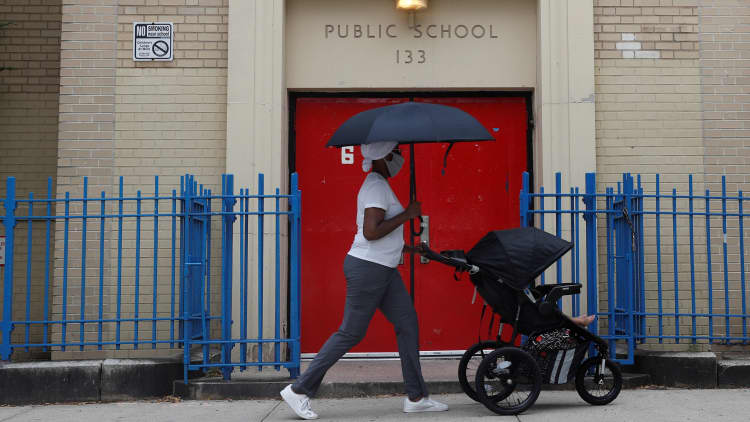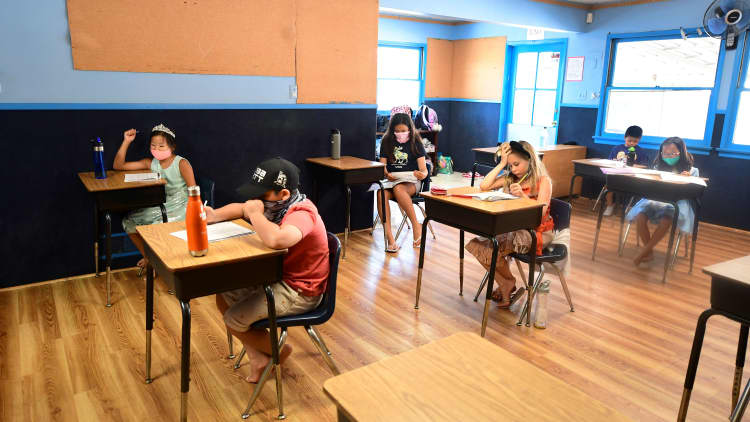
World Health Organization officials warned global leaders Monday against turning the decision to reopen schools "into yet another political football in this game."
"My fear in this is that we create these political footballs that get kicked around the place," Dr. Mike Ryan, executive director of the WHO's health emergencies program, said at a news conference at the organization's Geneva headquarters. "If we suppress the virus in our society, in our communities, then our schools can open safely."
WHO officials noted that current studies show that the coronavirus doesn't generally make children as sick as adults, but the organization's research on Covid-19's impact on children is "still limited."
"We know that overall they tend to have more mild disease, but in some situations they can have severe disease and we have seen children that have died," Dr. Maria Van Kerkhove, head of the WHO's emerging diseases and zoonosis unit, said.
Ryan added that scientists still don't know the long-term effect of the coronavirus on children's health, although they tend to have milder symptoms.
"The fact remains that when community transmission exists and when community transmission is intense, children will be exposed to that virus and children will be part of the transmission cycle," Ryan said.
"They will be exposed, some will be infected and they will infect others," he said.
In the U.S., health and government officials have been debating whether it's safe to reopen schools this upcoming fall as the nation experiences a surge in coronavirus cases.
President Donald Trump last week ramped up pressure to get public schools to fully reopen, threatening to withhold federal funding from states that don't reopen their schools. Vice President Mike Pence confirmed on Wednesday that the Trump administration is looking to the upcoming Phase 4 coronavirus relief bill as a potential way to exert leverage over schools.
The discussion comes as the United States responds to a wave of Covid-19 outbreaks predominantly in the West and South. The U.S. is one of two countries that accounted for half of the new daily coronavirus cases reported worldwide, WHO officials said Monday.
In New York, Gov. Andrew Cuomo on Monday reiterated the WHO's warning and said that the state is not "going to use our children as guinea pigs." Cuomo rolled out a plan for the state's schools that allows them to reopen regionally, based on low infection rates.
"We're not going to use our children as a litmus test, and we're not going to put our children in a place where their health is endangered. It's that simple," Cuomo said.
Ryan said that the safest way to reopen schools would be in regions with low community transmission, which is when people are infected through someone in their community rather than through travel.
"We can't move from, let's deal with schools and then we all deal with that for a week or two and then let's deal with the workplace, or then let's deal with infection in hospitals or long-term care facilities. This is playing whack-a-mole," Ryan said.
— CNBC's Christina Wilkie contributed to this report.



